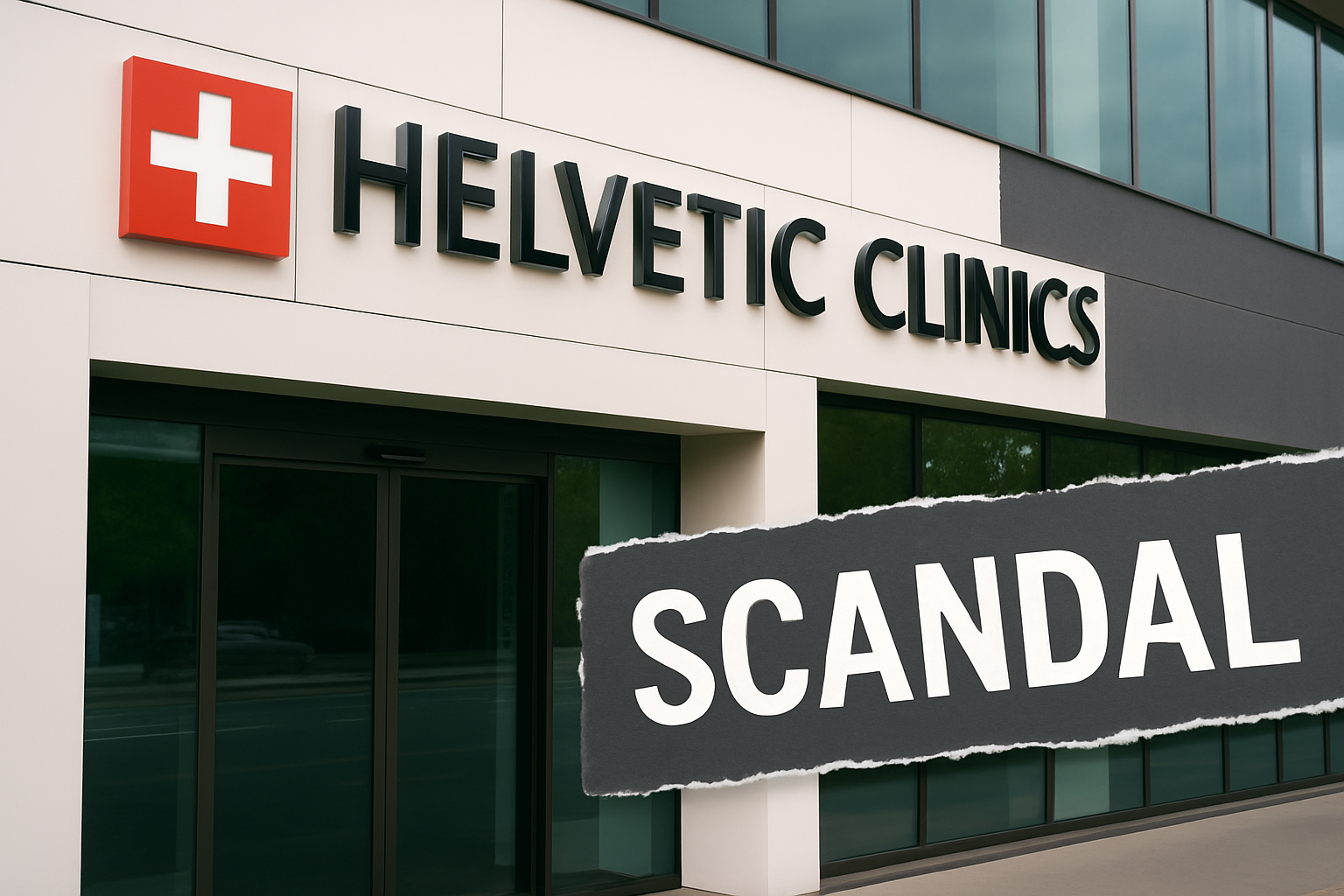When people search for the term Helvetic Clinics scandal, they are usually looking for clarity about rumors, allegations, and mixed patient experiences surrounding a popular dental tourism brand. The phrase has gained attention because it combines a respected name in the industry with claims of questionable practices. For readers, this raises an important question: what is true, what is rumor, and how much does this matter when considering dental treatment abroad?
The interest in this topic is not surprising. Dental tourism is a growing industry, and many patients travel internationally for affordable yet high-quality care. Helvetic Clinics, with its strong branding and European reach, has become a major player in this market. But with popularity comes scrutiny. The scandal narrative matters because patients want to know whether their health, money, and trust are at risk.
This article takes a closer look at the background of Helvetic Clinics, the origins of the scandal, the allegations, and what patients should realistically consider before making decisions.
Background of Helvetic Clinics
Helvetic Clinics began as a concept that promised Swiss quality dentistry at more affordable prices, mainly by operating in Hungary, a country known for attracting medical tourists. The model was simple but effective: combine modern facilities, certified dentists, and hotel-style convenience under one roof. This made the experience easier for patients who wanted both treatment and accommodation managed in a single package.
The clinics quickly earned a reputation for professionalism and cutting-edge technology. Patients from across Europe, especially the UK, France, and Ireland, were drawn to the promise of receiving high-quality implants, crowns, and cosmetic dentistry at a fraction of the cost back home.
Their visibility grew through strong online marketing, polished websites, and patient testimonials. Partnerships with dental associations and ratings from platforms like Global Clinic Rating added further credibility. Over time, Helvetic Clinics became one of the most recognized names in European dental tourism, standing out as a “luxury yet affordable” choice.
However, as the brand expanded and more patients shared their experiences online, criticism began to surface. While many reviews were positive, others hinted at questionable practices, laying the foundation for what some began calling the Helvetic Clinics scandal.
How the Scandal Emerged?
The scandal around Helvetic Clinics did not erupt from a single event. Instead, it grew gradually as blogs, forums, and patient review sites started raising red flags.
Some of the earliest claims came from whistleblower-style blogs alleging financial irregularities, including suspicious invoicing and use of offshore companies. These claims were not widely covered by mainstream media but circulated enough online to raise concerns.
At the same time, patient stories began appearing on platforms like Trustpilot. While many praised the quality of work, a portion described experiences that felt like high-pressure sales pitches. Patients reported being encouraged to take on more expensive treatments than initially planned, or facing unexpected costs after consultations.
The combination of insider-style accusations and first-hand patient complaints fueled the narrative of a scandal. Online discussions gave it further traction, as people searching for affordable dental tourism weighed the glowing reviews against the emerging criticisms.
Allegations Surrounding Helvetic Clinics
The phrase Helvetic Clinics scandal covers a wide range of allegations, some serious and others more about perception. These can be grouped into three main areas:
Financial and Administrative Concerns
One recurring allegation involves financial transparency. Certain blogs claim that Helvetic Clinics engaged in practices such as issuing fake invoices or channeling finances through offshore companies to minimize tax obligations. Critics suggest this not only raises legal concerns but also makes patients question whether they are being charged fairly.
It is important to note, however, that these allegations remain largely unverified by independent authorities. While the accusations add to the scandal narrative, they have not been confirmed in legal records available to the public.
Certifications and Dentist Employment
Another set of claims relates to certifications and employment structures. Some critics allege that the clinics exaggerate their credentials or that dentists are not directly employed but subcontracted through other arrangements. This raises questions about accountability and transparency in treatment.
Helvetic Clinics, on its official platforms, maintains that its dentists are fully qualified and its operations meet international standards, including ISO certifications. Patients are left to decide whether to trust official claims or the skepticism voiced in certain corners of the internet.
Patient Complaints Regarding Upselling and Treatment Practices
Perhaps the most common criticism comes from patient reviews. While many report positive outcomes, some describe feeling pressured into larger treatment plans than originally intended. Upselling in healthcare can erode trust, especially when patients are vulnerable and reliant on professional advice.
This allegation is not unique to Helvetic Clinics; it is an issue seen across the dental tourism sector. However, because the brand markets itself as a premium provider, these stories amplify the sense of a scandal when shared publicly.
Evaluating the Credibility of the Claims
To understand the Helvetic Clinics scandal, it is essential to separate facts from speculation.
Some claims are supported only by anonymous blogs, which weakens their credibility. While such sources can highlight concerns, they lack the weight of verified journalism or regulatory reports. This makes it difficult to know whether financial allegations are factual or fueled by personal grievances.
On the other hand, patient reviews carry more weight because they reflect real experiences. The consistency of complaints about upselling suggests there may be truth to the claim, even if it does not apply universally. At the same time, the volume of positive reviews cannot be ignored. Many patients describe excellent care, modern facilities, and life-changing results.
The reality likely lies in between: Helvetic Clinics may deliver quality dentistry for many patients, but like any business operating at scale, it may also have practices that deserve scrutiny. The lack of transparent, independent investigation leaves a gap between what is alleged and what is proven.
Impact on Patients and the Dental Tourism Industry
The implications of the Helvetic Clinics scandal extend beyond one clinic. For patients, the immediate impact is confusion. Should they trust the marketing and positive reviews, or should they worry about the negative claims? This uncertainty can cause stress and hesitation for those considering treatment abroad.
On a broader level, scandals — whether fully substantiated or not — affect the reputation of dental tourism as a whole. Hungary has built a strong industry around affordable dentistry for foreign patients. Allegations of unethical practices at a flagship clinic can cast doubt on other providers, even those operating transparently.
For the industry, this highlights the importance of regulation, accountability, and trust-building. Without clear standards and oversight, patients are left to navigate conflicting stories, which can discourage them from pursuing potentially beneficial treatments abroad.
Steps Readers Can Take for Protection
For patients considering dental tourism, especially in light of the Helvetic Clinics scandal, taking practical steps can provide peace of mind.
The first step is thorough research. Look beyond promotional websites and glossy brochures. Check multiple review platforms, read both positive and negative experiences, and pay attention to patterns rather than isolated complaints.
Second, verify credentials directly. Ask for documentation of certifications, dentist qualifications, and treatment guarantees. A reputable clinic should be willing to provide this information without hesitation.
Third, clarify costs in advance. Request detailed treatment plans and ensure that prices are transparent before committing. Be cautious if you feel pressured to upgrade to more expensive procedures.
Finally, trust your instincts. If something feels off, it is better to pause and reconsider. Dental tourism can offer excellent results, but patients must balance affordability with safety and accountability.
Conclusion on the Helvetic Clinics Scandal
The Helvetic Clinics scandal is a term shaped by a mix of allegations, criticisms, and genuine concerns. While some claims lack verified evidence, others — such as patient complaints about upselling — are grounded in repeated experiences. At the same time, many patients continue to report high-quality care, professionalism, and satisfaction with their results.
For readers, the key takeaway is balance. The scandal does not necessarily mean Helvetic Clinics is unsafe or fraudulent, but it does underline the importance of careful research and informed decision-making. By verifying credentials, checking reviews, and protecting oneself against high-pressure sales tactics, patients can approach dental tourism with greater confidence.
In the end, what remains clear is that patients deserve honesty, transparency, and trust in healthcare. Whether considering Helvetic Clinics or any other provider, staying cautious and informed is the best way forward.
My name is Mustafa, and I have been blogging for over 5 years. I am passionate about sharing complete, accurate, and helpful information with my readers. Along with managing content on The Matcha Read, I also contribute blog posts to premium websites. My goal is to provide valuable insights in a clear and easy-to-understand way, so every reader walks away with useful knowledge.










